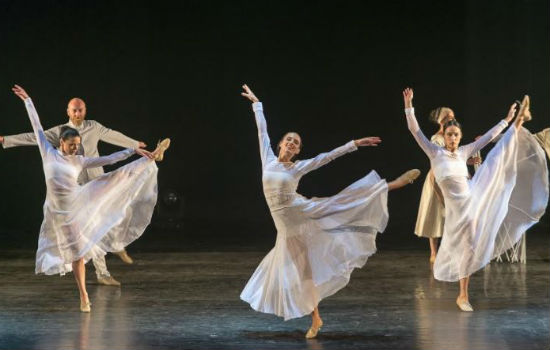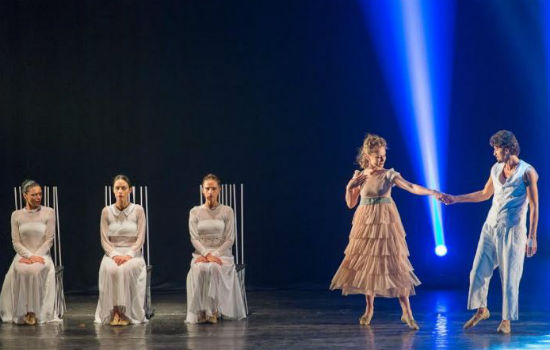Last year, the Cairo International Festival for Contemporary and Experimental Theatre (CIFCET) made its comeback after a five-year hiatus that lasted from 2011 to 2015.
Upon its return, the word “contemporary” was added to the festival's name, no longer limiting the shows to experimental works.
This year, running between 19 and 29 September, the festival is taking a step forward by almost doubling the number of participating plays. Last year, there were only 10 foreign productions, whereas this year, the festival is set to feature 20.
The five theatre workshops that were held last year saw great success, hence the organisers’ decision to include workshops this year, all targeting young people and animated by artists from around the world, for all 10 days of the festival.
The colloquies and conferences organised as part of the festival also welcomed several international critics and attendees, thus creating a true forum for ideas.
“The festival is still in a warm up, or comeback, phase. We are slowly but surely bringing back participants. Back in the day, before its hiatus, the festival welcomed over 40 shows a year. We are taking it step by step," explains festival coordinator and head of the selection committee for foreign plays Nasser Abdel-Moneim.
"The festival's budget is limited. The ministry of culture has had to make enormous budget cuts, and while we suspended our work, funding was secured from several other institutions."
This year’s programme has great Eastern European and Latin American presence. The opening show, titled The Three Sisters, is performed by the Georgian Tiblisi troupe, led by Konstantin Purtseladze, and constitutes a real surprise for the audience, as it puts forward contemporary dancing.
The dancers/actors bring to life the work of Russian playwright Tchekov, which follows the story of three sisters who are ravaged by solitude amid a conservative society.
“There is no dialogue in the show; everything is told through the choreography. The actors, who are not professional dancers, use a physical means of expression, somewhere between classical and contemporary dance,” Abdel-Moneim explains.
The Laboratory of Physical Theatre troupe will also use dancing to portray man’s eternal race against time in their show Wandering Time directed by Lidia Kopina. A man on stage rejects the concept of old age, searching for eternity by holding onto nature and primitive life.
The Armenian Yerevan Puppet Theatre troupe is bringing back a show from its Flight Over The City repertoire, written and performed by Narine Grigoryan, who has been taking part in the festival since the 1990s. It is the story of a young girl who loses her sight, and, with the help of her doctor, learns to use her imagination.
It is a monodrama in which the actress uses her son to create a fictional world.

The Three Sisters play by Georgian theatre troupe at the opening of the Cairo International Festival for Contemporary and Experimental Theatre (Photo: Bassam Al-Zoghby)
The festival takes a step further East by welcoming Chinese troupes. The director and pioneer of Chinese avant-garde theatre Meng Jinghui will be honoured during the festival.
He is also animating a directing workshop for young Egyptians and presenting his show Nine and Half Love, performed by the Meng Drama Studio troupe.
In this work, Jinghui mixes theatre performance with video projection to tell a story of love and revenge, evoking those of Homer’s legendary epics, the Iliad and the Odyssey.
From the other side of Pacific, Mexican troupe Al Rescate Cia presents the play Mascara vs Cabellera, which tells the iconic story of a popular wrestling champion and his love for his country. Scenic space is transformed into a wrestling ring, the place of confrontation between several protagonists.
The Chilean troupe Vicky Larrain Corp Teatro develops the genre of documentary theatre, with its show Cage One-Bird Two. The play, which is directed by Larrain, is based on true events that took place in the city of Colina. The show tells the story of a woman who was imprisoned in a chicken cage for 20 years.
“Members of the selection committee for foreign plays watched 240 plays, selecting only 20 based on purely artistic criteria – we stray far from politics. If there is a strong Eastern European or Latin American presence, it is a pure coincidence," Abdel-Moneim concluded.
"However, we cannot deny that theatre, as an art form, is intrinsically tied to socio political life. It is a dominant art form in Eastern Europe and Latin America, where developing countries suffer through continuous crisis. Theatre is a popular means of expression among the youth. Therefore, we can speak of the rise of theatre among those countries.”

The Three Sisters play by Georgian theatre troupe at the opening of the Cairo International Festival for Contemporary and Experimental Theatre (Photo: Bassam Al-Zoghby)
For more arts and culture news and updates, follow Ahram Online Arts and Culture on Twitter at @AhramOnlineArts and on Facebook at Ahram Online: Arts & Culture
Short link: